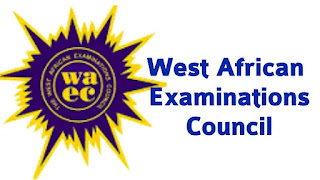EXAM: Waec 2024
SUBJECT: economics
PIN: no password required
JOIN OUR CHANNEL CLICK HERE
ECONOMIC OBJECTIVE
1-10:BBDCABDABC
11-20:BCABDDCDDB
21-30:CCBDCDDBAD
31-40:BACBACABAD
41-50:BCABCDBBAC
Completed.!!!!!
QUESTION 2
====================================================
QUESTION 3
====================================================
QUESTION 4
(4a)
Distribution refers to the process of making products or services available to customers through various channels, such as retailers, wholesalers, and agents.
(4b)
(i)Convenience: Retailers provide a convenient location for consumers to purchase products, often with extended hours and a wide range of products under one roof.
(ii)Product Information: Retailers can offer expert advice and product knowledge, helping consumers make informed purchasing decisions.
(iii)After-Sales Support: Retailers may provide after-sales support, such as warranties, repairs, and returns, which can enhance the overall consumer experience.
(4c)
(i)Increased Costs: Middlemen, such as wholesalers and distributors, can add to the cost of products, reducing profit margins for manufacturers and increasing prices for consumers.
(ii)Reduced Control: Manufacturers may have limited control over the distribution process and the final sale of their products when using middlemen.
(iii)Potential for Stockouts: Middlemen may not always maintain adequate inventory levels, leading to stockouts and lost sales for manufacturers and retailers.
======================================================
======================================================
QUESTION 7
(7a)
A Central Bank is a government-owned or controlled institution responsible for regulating a country's monetary policy, maintaining financial stability, and supervising the banking system. Examples of Central Banks include the Federal Reserve in the United States, the Bank of England in the United Kingdom, and the Central Bank of Nigeria.
(7b)
(i) Open Market Operations (OMO): Selling government securities on the open market to absorb excess liquidity and reduce money supply.
(ii) Increase in Reserve Requirement: Raising the minimum reserve requirement for commercial banks, forcing them to hold more reserves and reduce lending, thereby reducing money supply.
(iii) Increase in Interest Rates: Raising interest rates to make borrowing more expensive, reducing demand for loans, and decreasing money supply.
(7c)
(i) Banker to the Government:
The Central Bank acts as the government's bank, providing services such as: Managing government accounts, Handling government finances, Advising on economic policy, Implementing monetary policy.
(ii) Banker to Commercial Banks:
The Central Bank acts as the bank for commercial banks, providing services such as: Holding reserve deposits, Providing liquidity, Supervising and regulating banking activities, Acting as a lender of last resort.
(iii) Lender of Last Resort:
The Central Bank acts as the lender of last resort by providing emergency loans to commercial banks facing liquidity crises, preventing bank failures and maintaining financial stability.
====================================================
QUESTION 7
======================================================
QUESTION 8
waec 2024 updated Waec Timetable
JOIN OUR SOCIAL HANDLES
Click Here For whatsapp Channel
Don't be Scammed this only our Official Social Handles













0 Comments